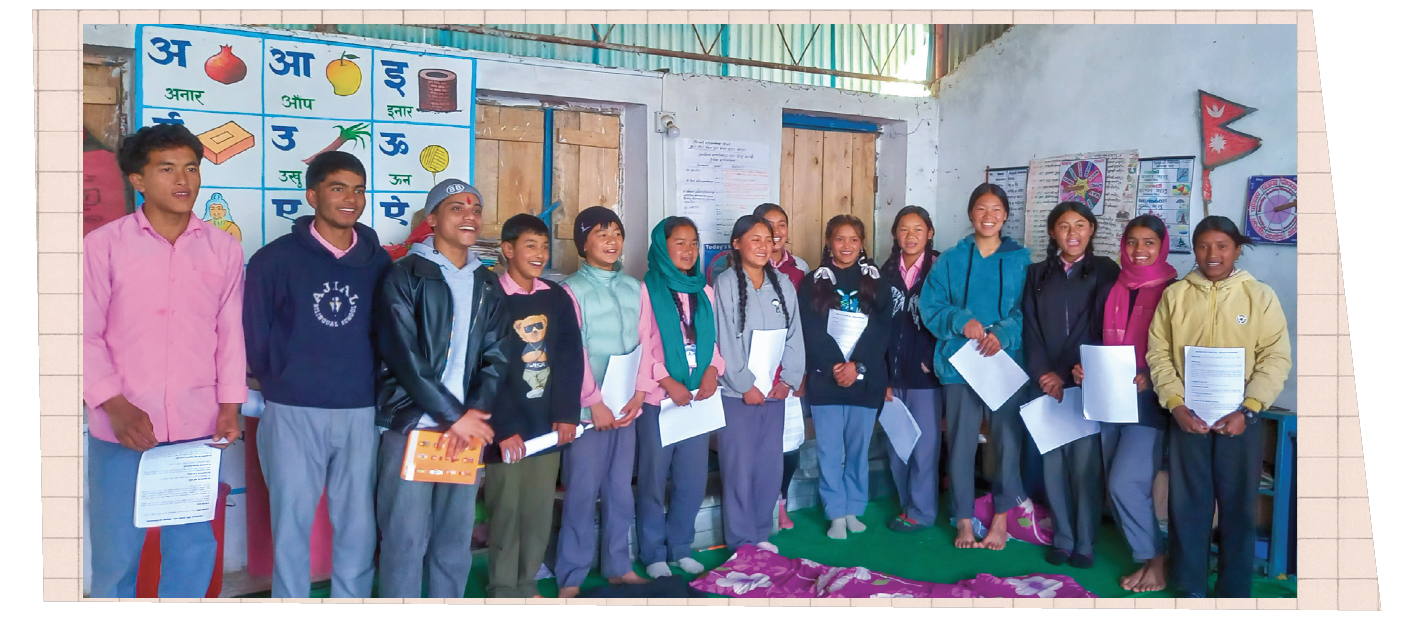Youth Demand Action: New Research Unlocks Key Solutions to the Global Hunger Crisis
- Key Findings: The “Right to Food: Young People’s Call to End Hunger and Malnutrition” research confirms that youth have a deep understanding of the hunger and malnutrition problem, identifying key barriers like cost, access, and quality of food. They also argue that nutritious food is a right, not a privilege, and that schools must be part of the solution.
- Call to Action: The youth leaders created a blueprint for change, outlining specific recommendations for governments to address hunger, including investing in food security, tackling poverty, improving food systems, and strengthening policies.

Manila, Philippines; 16 October 2025 – On World Food Day, a new research report titled “The Right to Food: Young People’s Call to End Hunger and Malnutrition” has issued a powerful challenge to policymakers. The study, co-led by CHAMP youth leaders, provides critical, firsthand insights into the pervasive issue of child hunger and malnutrition across Asia and the Pacific, confirming that young people are not just victims of the crisis but are informed agents of change, ready to lead with solutions.
The study is launched by World Vision’s CHAMP (Child-Led Advocacy and Meaningful Participation) initiative in partnership with the Young and Resilient Research Centre (Y&R) at Western Sydney University. This unique collaboration trained fifteen youth leaders (aged 13–20) from five countries in research methods. These young researchers then engaged 214 participants (ages 10–18) through ten workshops, gathering quantitative and qualitative data on their experiences with food insecurity.
The findings come against a stark backdrop: the region faces a "triple burden" of malnutrition (undernutrition, overnutrition, and micronutrient deficiencies), exacerbated by the spread of unhealthy processed foods, rising costs of living, and extreme climate events.
Key Findings: Children and Youth Speak Out
The research surfaced compelling, unfiltered insights, demonstrating that young people have a nuanced understanding of the systemic barriers to healthy eating:
- Nutrition is a Right, Not a Privilege: Participants strongly asserted that access to nutritious food should be guaranteed for all, not just for the wealthy. They noted inequalities, observing that low-income families are often forced to rely on inexpensive, processed foods that lack essential nutrients.
- Schools Must Be Central: Young people reported seeing peers go hungry at school and called for immediate action, advocating for free, nutritious breakfast and lunch programs, as well as healthier canteen options, to ensure schools are places where no child is left hungry.
- Three Major Barriers: The study identified three primary obstacles to healthy diets: cost (rising food prices), access (limited availability of fresh produce in communities), and food quality (concerns over chemical use and pollution in food systems).
A Youth Blueprint for Change
Based on their firsthand data, the CHAMP youth leaders crafted a powerful set of recommendations directed at governments and policymakers:
- Prioritise and Invest: Governments must make nutrition a community-wide priority and commit to long-term financial investment in food security solutions.
- Tackle Poverty and Inequality: Address the root causes of hunger, such as inflation and unemployment, by strengthening social protection systems to ensure families can afford healthy food.
- Improve Food Systems and Safety: Support local, sustainable, and climate-smart agriculture, and implement safer farming practices with reduced chemical use to protect food quality and water sources.
- Strengthen Policies and Education: Introduce regulations such as pricing controls and restrictions on the marketing of unhealthy foods, while also incorporating comprehensive nutrition education into schools and communities.
Sarah Bearup, Chief Operating Officer of World Vision South Asia and the Pacific, said, “When we equip young people with the right tools, they do not just participate; they lead. Through this initiative, we have witnessed a powerful youth-led movement that is shaping policy and driving progress toward the Sustainable Development Goals. It is grounded in lived experience and speaks boldly to the agency of children and young people today. Their insights are more than data; they are a call to action. It is a reminder to all of us that creating a world where no child goes hungry requires listening to young voices and working alongside them as true partners in change.”
-Ends-
For arrangements with media, please contact:
Aaron Joseph Aspi
Corporate Communications Advisor, World Vision South Asia and Pacific
Email: aaron_joseph_aspi@wvi.org